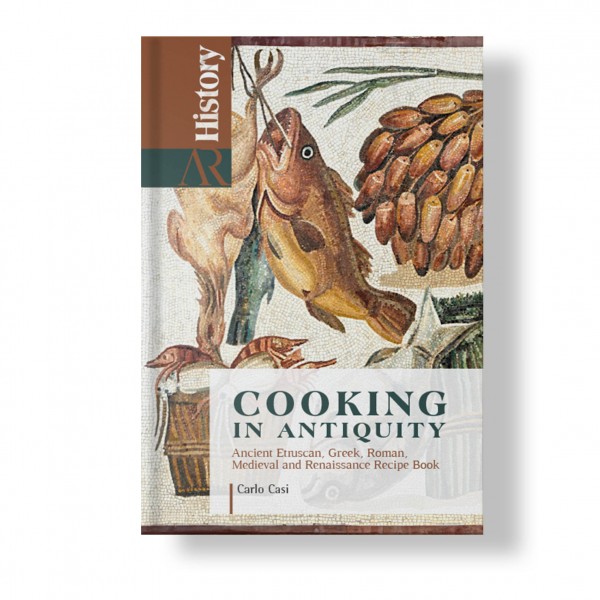



This book spans various different periods in history, from the Etruscans to the world of the Renaissance. The first part of the book deals with the history of the main kinds of food, starting in the earliest times and continuing down to the Renaissance. The second part contains actual recipes, and ways in which various foods were prepared.
SINOSSI
Cooking is an art, and even the simplest dish can become a minor masterpiece. But you need a thorough knowledge of the ingredients, and of cooking utensils and equipment, and the history of cooking itself. This book spans various different periods in history, from the Etruscans to the world of the Renaissance. As such, it is a useful contribution to the historical reconstruction of worlds that no longer exist, but which we feel the need to talk about and describe. This reconstruction is put together not just from written sources (which would never suffice, by themselves), but also by drawing on all the various types of available sources (archaeological, bioarchaeological, genetic, and ethno-anthropological). There is a wide array of unusual, hidden meanings behind the things we eat, and how they are cooked! Some people believe we have a free choice when it comes to the dinner table. In reality our habits are determined by our culture, religion and local traditions, and even by our psychology, even though we ourselves may be unaware of it. Consequently customs also vary through time, and across different geographical areas. The first part of the book deals with the history of the main kinds of food, starting in the earliest times and continuing down to the Renaissance. Drawing on the latest research, it provides an overview of our current understanding of the subject. The second part contains actual recipes, and ways in which various foods were prepared. However, this is not the usual, standard list of starters, first courses, main dishes etc. These would be out of place, devoid of their respective historical context. Instead, this book takes the form of a carefully arranged set of recipes organized by theme. From the importance of fish in the ancient diet to the use of spices (sometimes used to excess!), and from the introduction of pepper to the somewhat more bizarre use of aphrodisiacs. Meanwhile the whole book is written in clear, accessible language that allows anyone to try their hand at becoming an ancient cook, a challenging but highly rewarding exercise.
PROFILO DELL'AUTORE
The archaeologist Carlo Casi has conducted excavations and fieldwork throughout Italy and abroad. He has numerous academic publications, exhibition catalogues and archaeological guidebooks to his name. He teaches Heritage Promotion and Development at the “Lorenzo da Viterbo” Academy of Fine Arts, and is Scientific Director of Fondazione Vulci, and of the “Antica Castro” Archaeological Park. A contributing author to two magazines on history and archaeology, “Archeo” and “Medioevo”, he has also penned many scientific publications, mainly involving the antiquities of the territory of Vulci.